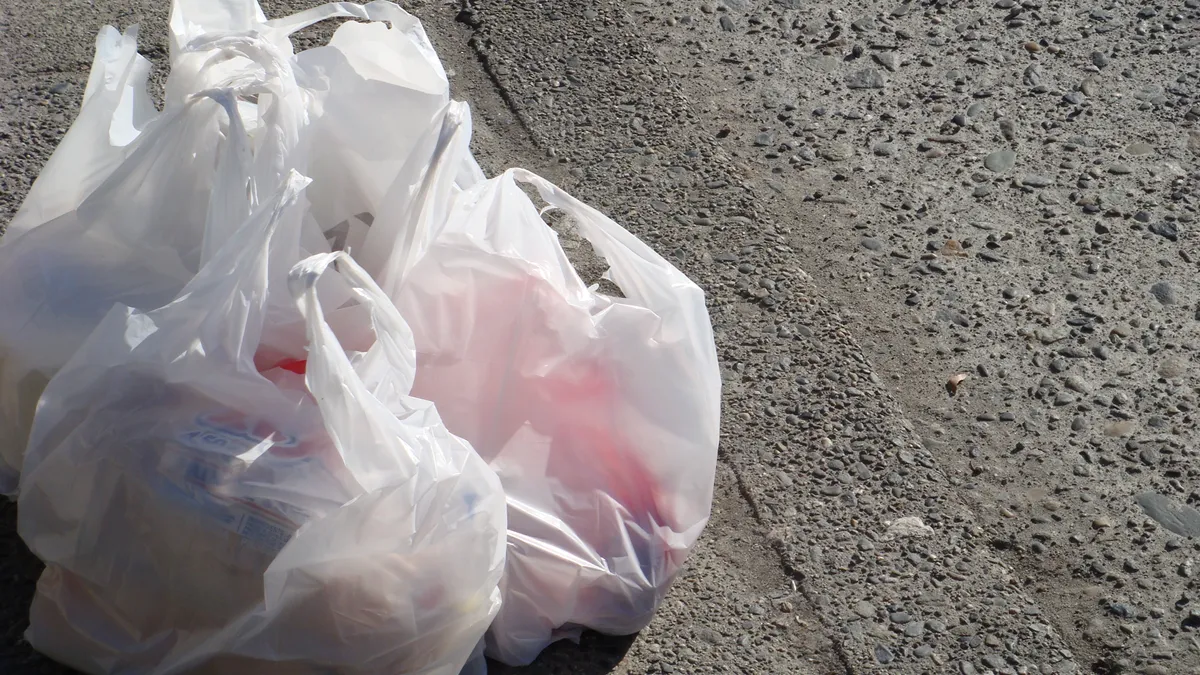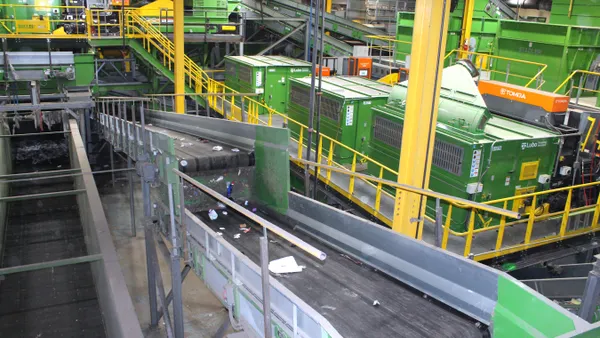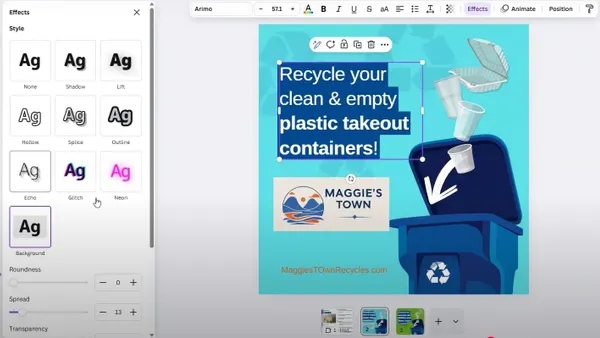Dive Brief:
- As legislative sessions across the U.S. continue, several states are making moves toward banning single-use plastic bags and charging for replacement options. In Washington, for example, SB 5323 passed the state Senate and is in committee in the House of Representatives. An environmental committee already evaluated the bill favorably and recommended its passage.
- Last week, the Vermont Senate advanced a bill (S.113) that would prohibit single-use plastic bags and expanded polystyrene foam, mandate a fee for paper bags and require vendors to only give out single-use plastic straws on request. Gov. Phil Scott is “not opposed” to the plastic bag ban, according to VT Digger.
- In Massachusetts, a bill (H.771) that would ban single-use carryout bags and charge for replacement options was the subject of an April 2 hearing. At least 90 communities in Massachusetts, including Boston, already have some sort of restrictions on bags.
Dive Insight:
Right now, only California and Hawaii (via county policies) have statewide plastic bag bans in place. New York just passed one that will be phased in next March and allow local governments to enact their own fees on paper bags. After years of business opposition and plastics industry lobbying, that number has a chance to grow even more by the end of this year. The policies in Vermont and Massachusetts are viewed as likely to pass, especially because the latter now has support from the Massachusetts Municipal Association and the Massachusetts Food Association. Policies also up for debate in other New England states including Rhode Island, where the governor commissioned a task force on plastic pollution that recently returned recommendations including a bag ban.
On the other end of the spectrum, some states are considering preemption bills that would prevent localities from establishing their own rules regulating plastic bags and other single-use items. Tennessee Gov. Bill Lee plans to sign a preemption bill, according to The Tennessean, after cities such as Memphis and Nashville were considering bag bans. A preemption bill is also advancing through the legislature in Oklahoma, where it is headed for a final vote in the house, as reported by The Journal Record. Multiple other states are also weighing their own preemption bills, following existing policies in nearly a dozen others including Arizona and Texas.
Plastic bags are highly common sources of contamination in single-stream recycling systems, as many consumers don't realize they aren't conventionally recyclable outside of drop-off programs. The bags can be dangerous tanglers in MRFs, putting workers at risk when they have to manually remove them from machinery.
Bags and other single-use items like expanded polystyrene carryout containers and plastic straws, are big symbols in "zero waste" efforts and campaigns as they're easy to identify and target for action at the public and consumer level. While some countries, such as Kenya, have made ambitious national moves it is unlikely the U.S. will see anything similar in the near future. Instead, efforts have been most active locally and may now be reaching a critical mass at the state level.










